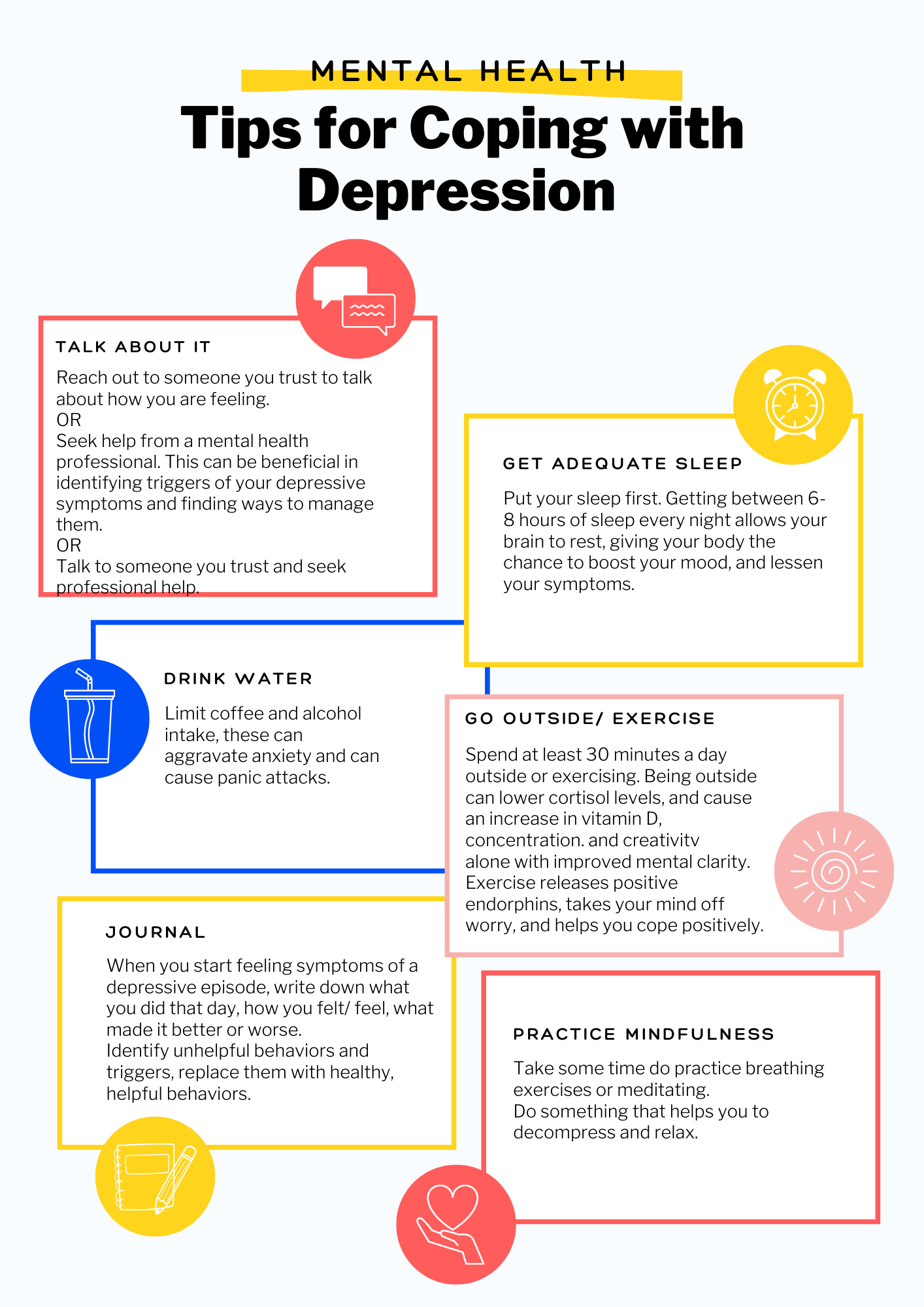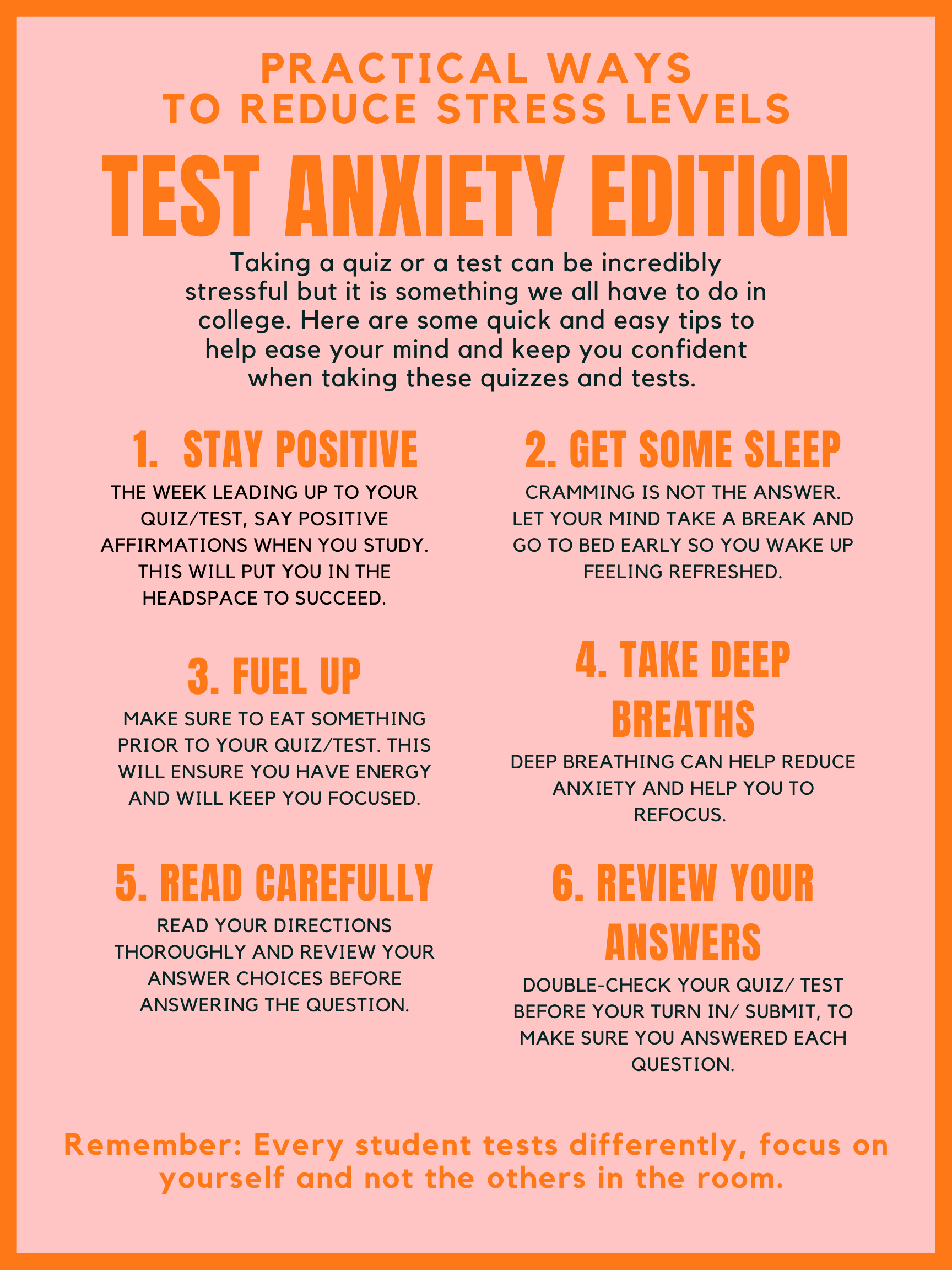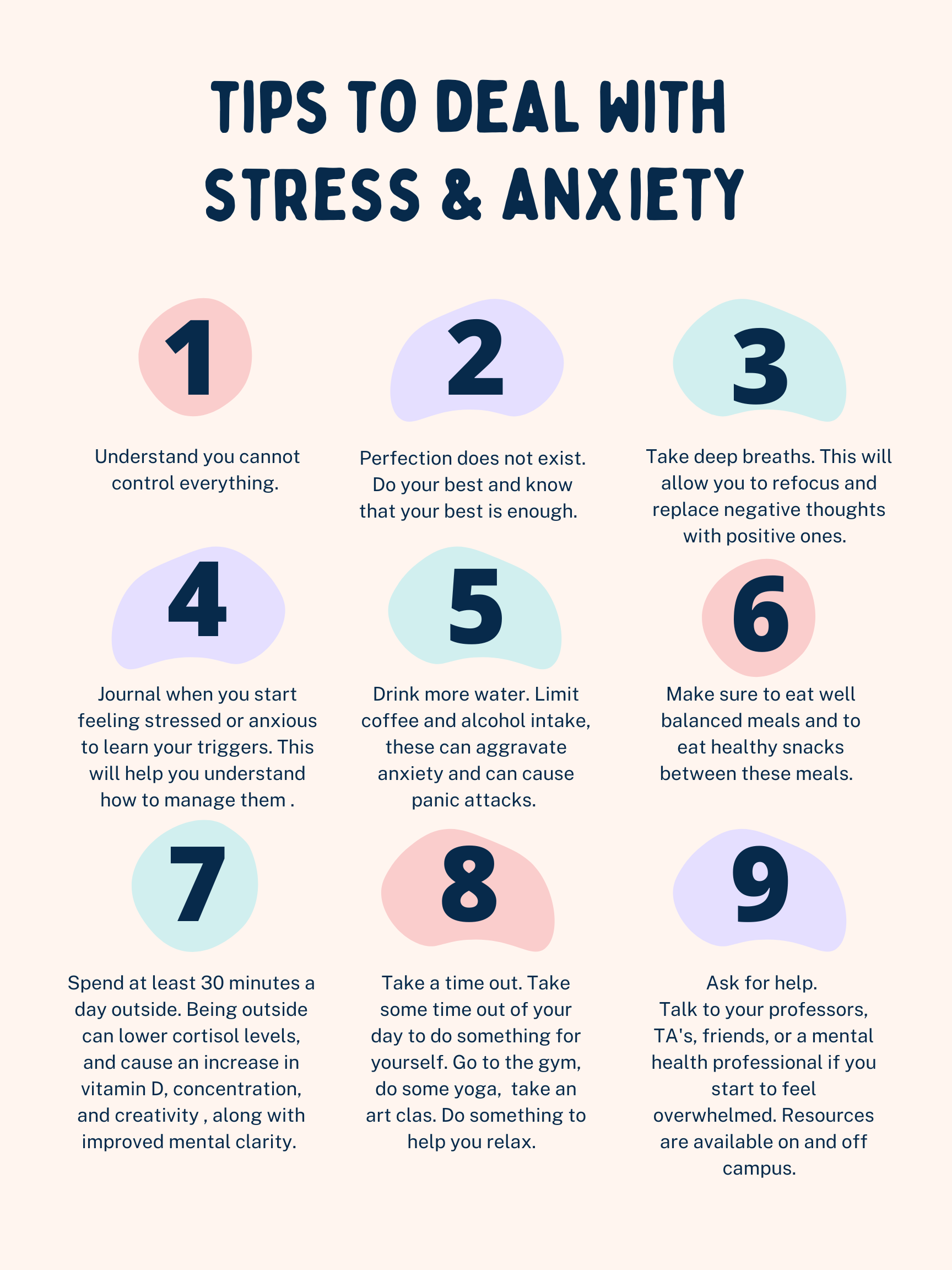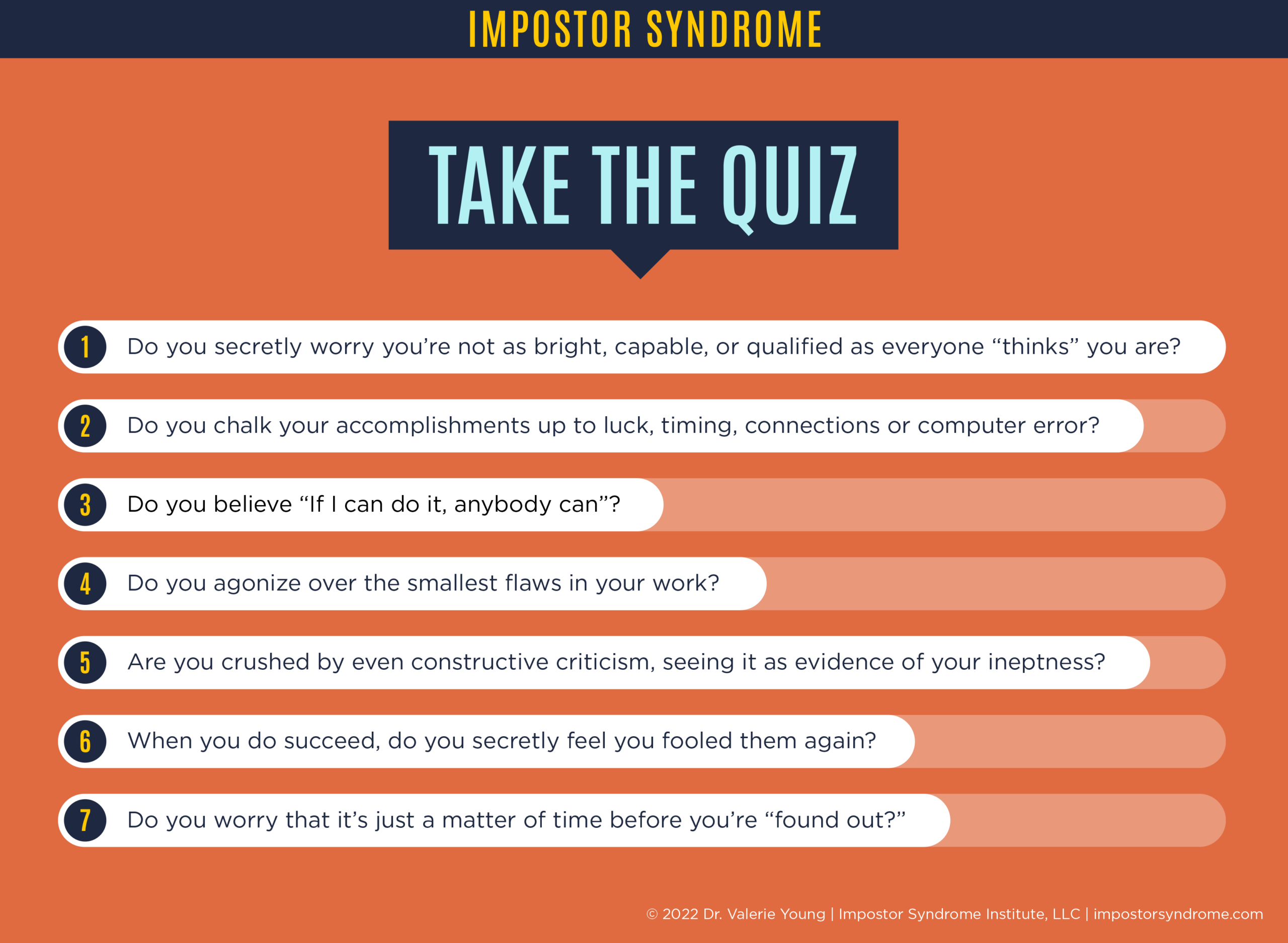Mental Health Toolkit
Use the resources on this page to learn about how you can prioritize your mental health.
Tips for Managing Depression

Depression (Major Depressive Disorder)▸
“Depression is a mood disorder that causes a persistent feeling of sadness and loss of interest. Also called major depressive disorder or clinical depression, it affects how you feel, think and behave and can lead to a variety of emotional and physical problems. You may have trouble doing normal day-to-day activities, and sometimes you may feel as if life isn't worth living.
More than just a bout of the blues, depression isn't a weakness and you can't simply "snap out" of it. Depression may require long-term treatment. But don't get discouraged. Most people with depression feel better with medication, psychotherapy or both.”
- Mayo Clinic (2023)
Helpful Links:
Tips for Reducing Test Anxiety

Test Anxiety ▸
Test anxiety can affect anyone, whether you're a high school student, a college student, or an employee who has to take tests to move ahead in a career or get certified.
A little nervousness before a test is typical and can help sharpen your mind and focus your attention. Being a little nervous before taking a test is a normal feeling for most people. In fact, the National Institute of Health says that testing anxiety affects up to 40% of students in the US. But with test anxiety, feelings of worry and self-doubt can interfere with how well you do on tests and make you miserable.
If you suffer from testing anxiety, you know that it isn’t limited to just feeling nervous the day before your exam. It can escalate to extreme worry and self-doubt, and it can affect how well you perform on the test.
Thankfully, there are many ways to conquer test anxiety.
Helpful Links:
Tips for Coping with Stress and Anxiety

Anxiety Disorders▸
“Experiencing occasional anxiety is a normal part of life. However, people with anxiety disorders frequently have intense worry and fear about everyday situations. Often, anxiety disorders involve repeated episodes of sudden feelings of extreme anxiety and fear or terror that reach a peak within minutes (panic attacks).
Examples of anxiety disorders include generalized anxiety disorder, social anxiety disorder (social phobia), specific phobias and separation anxiety disorder. You can have more than one anxiety disorder. Sometimes anxiety results from a medical condition that needs treatment.
Whatever form of anxiety you have, treatment can help.
- Mayo Clinic (2023)
Helpful Links:
Tips for Overcoming Imposter Syndrome

Consider the quiz questions above if you think you might be struggling with feelings of imposter syndrome.
Helpful Links:
Imposter Syndrome▸
What is imposter syndrome?
Imposter syndrome is a behavioral health phenomenon that can cause high-achieving people to doubt their skills, knowledge, or accomplishments. People with imposter syndrome may feel like they're not as talented or worthy as others, and they may fear that others will eventually realize they're a fraud. These feelings can lead to anxiety, depression, and apprehension, and they can occur in many areas of life, including work, school, and other high-pressure settings.
While imposter syndrome isn't a clinical diagnosis, it can cause real harm and prevent people from living life to their full potential. However, these feelings can be overcome.
Courses and Trainings
Mental Health First Aid is a course that teaches you how to identify, understand and respond to signs of mental illnesses and substance use disorders. The training gives you the skills you need to reach out and provide initial help and support to someone who may be developing a mental health or substance use problem or experiencing a crisis.
What does QPR mean?
QPR stands for Question, Persuade, and Refer — the 3 simple steps anyone can learn to help save a life from suicide.
Just as people trained in CPR and the Heimlich Maneuver help save thousands of lives each year, people trained in QPR learn how to recognize the warning signs of a suicide crisis and how to question, persuade, and refer someone to help. Each year thousands of Americans, like you, are saying "Yes" to saving the life of a friend, colleague, sibling, or neighbor.
QPR can be learned in our Gatekeeper course in as little as one hour.
NAMI works to educate, advocate, listen and lead to improving the lives of people with mental illness and their loved ones.
Thank you for using our mental health resources, we encourage you to share this page with others ♥